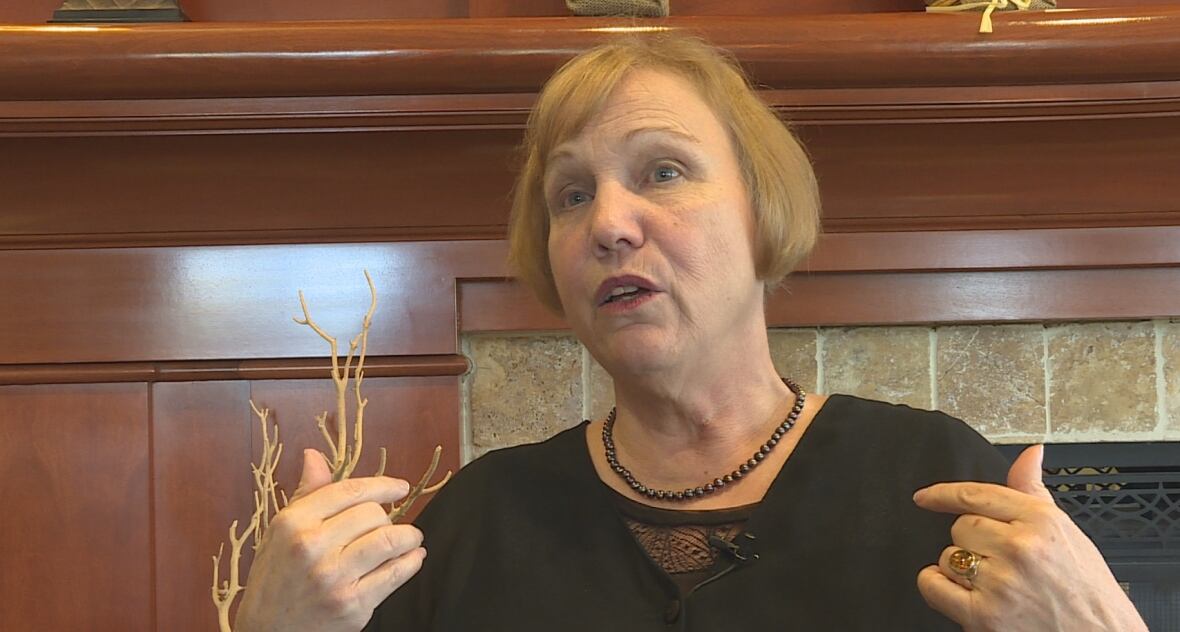Years after MS liberation therapy discredited, patients, doctors struggle with its legacy
Doctors, MS patients both think work needs to be done to repair relationship after treatment dispute
Florence D'Eon, 65, has kept a secret from her doctor for more than six years.
In 2010, the Multiple Sclerosis sufferer spent $6,000, travelled from her Ottawa home to Bulgaria, and underwent the now discredited "liberation therapy" for chronic cerebrospinal venous insufficiency, or CCSVI.
Despite research suggesting CCSVI doesn't play a role in MS, D'Eon said she feels ongoing benefits from the treatment, and thinks others could as well.
- Analysis: Latest MS 'miracle' treatment overshadows the real news
- Zamboni MS vein therapy debunked by study
That conflict highlights an ongoing problem amongst some in the MS community, according to several patients and researchers who spoke to CBC News.

MS patients, who say they've been called "cult members" for believing in CCSVI, are on one side; and some neurologists, who say their patients view them as the "enemy," are on the other side.
Patients called 'crazy', doctors seen as 'enemy'
"We were so … maligned as patients. We were called 'crazy,' we were a member of a 'cult,'" D'Eon told CBC News.
"So to go to a doctor that has said that, and to say, 'Yeah, I've had the procedure,' and be dismissed like what I've experienced doesn't count, I didn't feel like being demeaned in that way. So … I didn't tell my doctors."
That's cause for concern according to the director of the MS Research Clinic at the Ottawa Hospital.
He said some neurologists feel their patients "abandoned" them over CCSVI.

"I think the patients said, 'Forget the research, just offer the treatment.' And that's dangerous," said Dr. Mark Freedman.
"[CCSVI] was driven, I think, by some groups of patients, who felt … that the doctors who had been caring and looking after them for all these years, were in a conspiracy with pharmaceutical companies to somehow perpetuate the disease … or hide the cure because it would mean no drug therapy."
"Everything was being driven by patient testimonials. 'I feel great, look what it's done.' So it was that sort of encouragement, and this whole idea that the neurologist was their enemy," said Freedman.
Patients still hold CCSVI information sessions
D'Eon, and several others who had treatment for CCSVI, spoke with CBC News at a conference this past weekend in Ottawa.
It was organized by the Canadian Neurovascular Health Society, which strongly supports liberation therapy.
About 90 people attended, including some who are planning to shell out thousands of dollars for the therapy, and dozens of others who believe strongly in its benefits.

"[My doctor] believes that everything I've done is a fad. That's his word … it's a little dismissive," said Penny Setterfield.
The 62-year-old Ottawa woman went to New York for liberation therapy in 2010, and said she's had lasting benefits to her eyesight.
Where does the MS Society stand?
Italian Paolo Zamboni made headlines in 2009 for his belief in CCSVI as a cause of MS, and his theory that clearing blocked or narrowed neck veins could relieve MS symptoms.
Following that the MS Society of Canada spent $1.2 million dollars on CCSVI research, including an ongoing clinical trial it's helping to fund at the University of British Columbia.
The trial began before studies started to call the Zamboni theory into question, and the society said it is committed to seeing it through, according to Karen Lee, vice-president of research with the society.
"We are still awaiting the results of the clinical trial to determine if for sure, or not for sure, the treatment of CCSVI could potentially bring relief, or treatments, for people living with Multiple Sclerosis."
Lee said the society has also taken steps in the last few years to make sure patient voices are incorporated into its research program.
Lessons learned for doctors and patients
Freedman said there are "effective treatments" now for people with MS, and he agrees patient perspective needs to be part of research going forward.
"I don't think anyone was ready for this," he said. "One of the fallouts of all this is there needs to be a better way of listening to the patients, and addressing their concerns."
"And when they are so strongly in belief of something, we should have been organizing ourselves to go, 'OK … they are fostering the idea that this is good and promoting it, let's dispel this … here's why we don't think this is right.'"
But D'Eon said she she'll continue to believe in the benefits of liberation therapy, and hopes doctors will hear her out.
"They didn't listen to patients … And I think it's going to be a very sad note in history for the doctor-patient relationship, and what actually happened here," she said.

